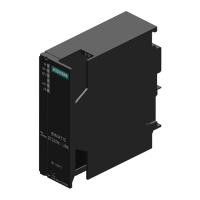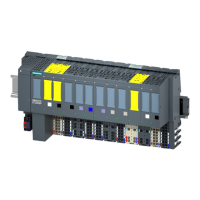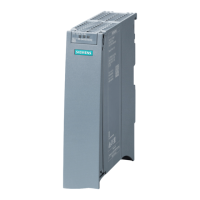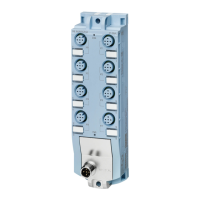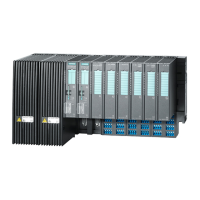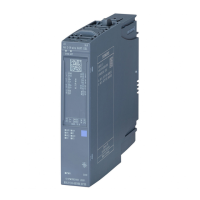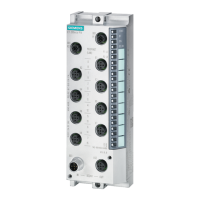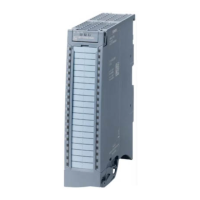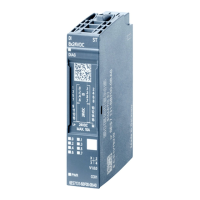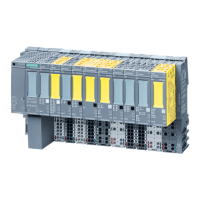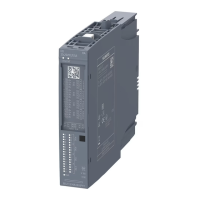Analog Electronic Modules
12-49
ET 200S Distributed I/O System
EWA-4NEB 780602402-12
Analog Value Formation
Measurement principle Integrating
Integration and cycle time /
resolution per channel
•
Integration time
selectable
Yes
•
Interference frequency
suppression in Hz
60 50 no
•
Integrationtimeinms 16,67 20 7,5
•
Conversion time in ms
-- 1 channel per
module active
-- 2 channels active
per module
25 30 10
58,3 70 26
•
Cycletimeinms
-- 1 channel per
module active
-- 2 channels active
per module
75 90 30
175 210 78
•
Resolution (incl.
overshoot range)
10 V/ 15 Bit +VZ
5V/15Bit+VZ
1to5V/15bits
Interference Suppression, Error Limits
Interference voltage
suppression for
f= n x (f1¦ 0.5%),
(f1 = interference
frequency)
•
Common mode
interference (U
SS
)
•
Common mode
interference (peak value
of interference < rated
value of the input range)
•
Crosstalk between
inputs
min. 100 dB
min. 90 dB
min. --100 dB
Operational limits
(in the entire temperature
range, relative to the input
range
1
)
0.1 %
Operational error limits
(across complete
temperature range, in
relation to input range;
calibration blocked)
0.5 %
Basic error limit (operational
error limit at 25_C, relative
to input range; calibration
enabled
1
)
0.05 %
Temperature error (based
on input range; calibration
enabled
1
)
0.003 %/K
Temperature error (in
relation to input range;
calibration blocked)
0.015 %/K
Linearity error (relative to
the input range)
0.03 %
Repetition accuracy
(in transient state at 25 _C,
relative to input range)
0.01 %
Data for selection of the sensor
Input range (rated
value)/input resistance
•
Voltage 10 V/min. 1 MΩ
5V/min.1MΩ
1to5V/min.1MΩ
Permitted continuous input
voltage (destruction limit)
35 V continuous,
75 V for max. 1 ms
Smoothing of measured
values
Yes, configurable in
4 stages by digital
filtering
Level
No
weak
medium
strong
Time constant
1 x cycle time
4 x cycle time
32 x cycle time
64 x cycle time
1)
When configuring modules the runtime
calibration can be enabled to compensate for
component changes resulting from changes in
the ambient temperature. The update of new
data is delayed by 250 ms during the
calibration interval. A calibration is conducted
at every change of 5
°C in the ambient
temperature.
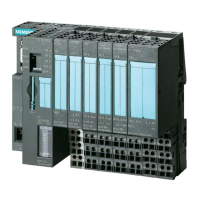
